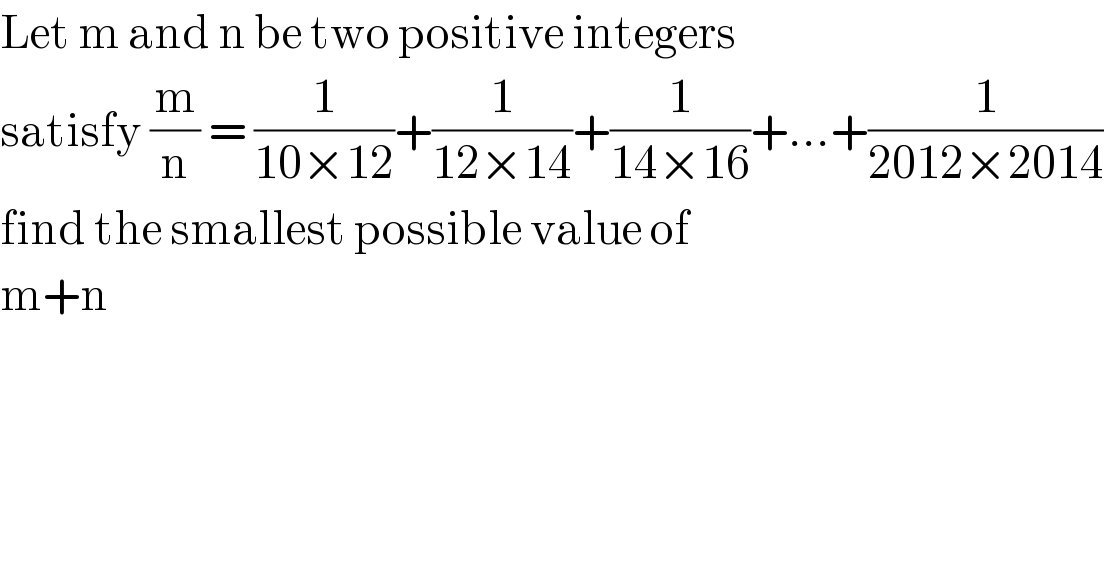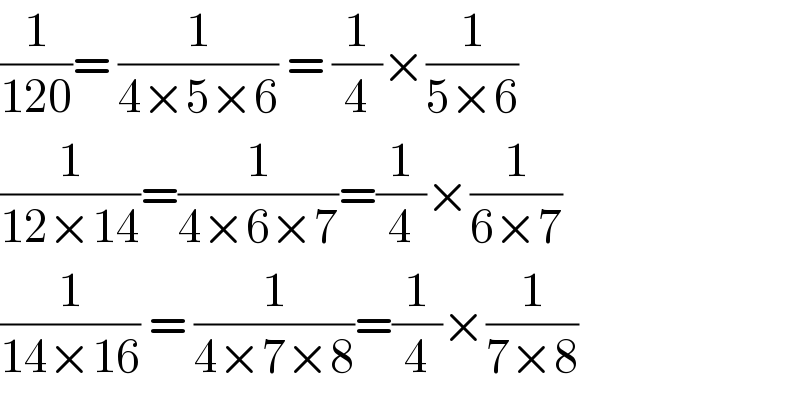
Question and Answers Forum
Question Number 96558 by bobhans last updated on 02/Jun/20

Answered by john santu last updated on 02/Jun/20
![⇒ (m/n) = (1/4)Σ_(p = 5) ^(1006) (1/(p(p+1))) = (1/4)Σ_(p = 5) ^(1006) (1/p)−(1/(p+1)) [ telescopy] =(1/4)((1/5)−(1/(1007))) = ((501)/(10070)) since gcd(501,10070) = 1 we have m+n = 10571](Q96559.png)
Commented by selea last updated on 02/Jun/20

Commented by john santu last updated on 02/Jun/20

Commented by bobhans last updated on 02/Jun/20

Commented by selea last updated on 02/Jun/20

Commented by bobhans last updated on 02/Jun/20

Commented by bobhans last updated on 03/Jun/20

